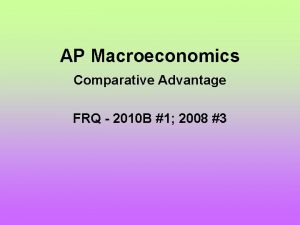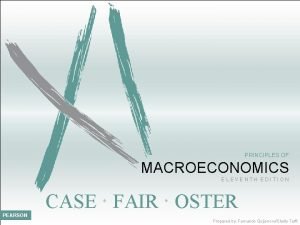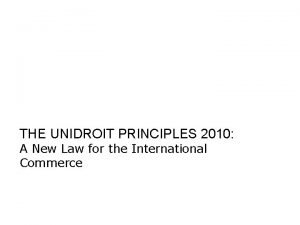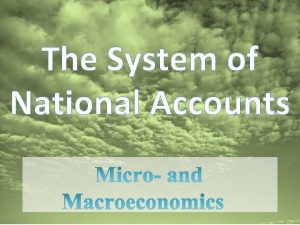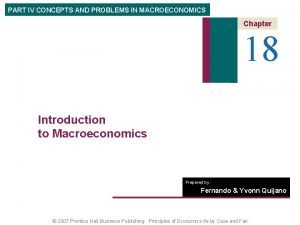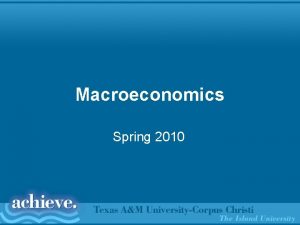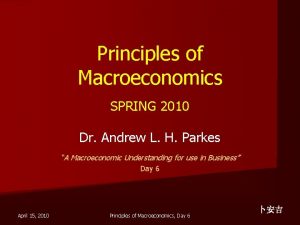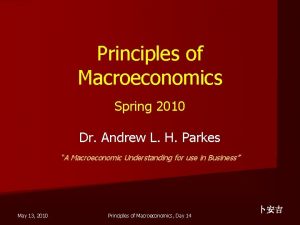Principles of Macroeconomics Spring 2010 Dr Andrew L






- Slides: 6

Principles of Macroeconomics Spring 2010 Dr. Andrew L. H. Parkes “A Macroeconomic Understanding for use in Business” May 11, 2010 Principles of Macroeconomics, Day 13 卜安吉

Monetary Base vs. Reserves n An important distinction is that the Fed controls the currency in circulation and level of reserves. n MB =C+R n Note the two reasons in the text You may also note your Financial Markets text (Mishkin Ch. 16, p. 376 -80 ) May 11, 2010 Principles of Macroeconomics, Day 13 2

Multiplier in Reality n Look at this section to see reality n Currency in circulation does not support multiple deposits LIKE reserves do. n Also note what happened in the Great Depression – everyone held cash rather than deposits at a bank. May 11, 2010 Principles of Macroeconomics, Day 13 3

Milton Friedman n Created an Economics following called the “Monetarists” due to their focus on money causing the Great Depression and most ills in the economy. n An important economist, no doubt, though many of us do not believe the Fed as the main cause of the Great Depression May 11, 2010 Principles of Macroeconomics, Day 13 4

Open Market Operations n Liabilities and assets of the Fed. n Even though the Fed only controls the Monetary Base and not the full money supply, the Fed exerts very powerful control over the money supply. n Usually the Fed can counteract other influences upon the money supply. May 11, 2010 Principles of Macroeconomics, Day 13 5

ECB – European Central Bank n Very similar to the Fed. n Nations’ central banks still really conduct open market operations and services within the country. n Unanimous consent. n Notice the “voting” membership policies at the ECB – depending upon a country’s size May 11, 2010 Principles of Macroeconomics, Day 13 6
